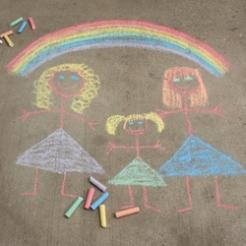Catholic Care (Diocese of Leeds) has failed in its latest attempt to challenge the Charity Commission’s refusal to let it change its governing documents so that it can continue to prevent gay couples from using its adoption service.
The charity took its case to the Upper Tribunal in September, challenging the April 2011 judgment of the Charity Tribunal which upheld the Charity Commission’s decision.
Upper Tribunal judge Mr Justice Sales issued his decision on Friday, finding that although the Charity Tribunal had made some errors in law, these were not serious enough to render its judgment wrong.
The case arose because new equality legislation introduced in 2007 meant that Catholic Care could only go on discriminating against same-sex couples if it amended its Memorandum of Association, and for that it needed to gain permission from the Charity Commission. The Commission refused to grant this permission.
The Upper Tribunal hearing was the ninth court case on the matter. The first hearing was held in May 2009 when Catholic Care asked the Charity Tribunal to overturn the Charity Commission’s initial decision. Each time it has failed to convince the court it has gone on to appeal to a higher court.
Charity claimed fundraising would be affected
The charity has consistently argued that if it cannot exclude gay couples from using its adoption service, its ability to fundraise under the auspices of the Roman Catholic Church will be severely impeded, to the extent that the adoption service will have to shut down. This will mean that fewer children will find adoptive families.
In his judgment, Mr Justice Sales said that the charity had failed to adequately prove this point. He cited evidence given at the Charity Tribunal hearing by adoption expert Dr Julie Selwyn, who said that because of various issues with the fee arrangements between local authorities and voluntary sector adoption agencies, councils are “wary” of using voluntary adoption agencies and so there is already a surplus of prospective adoptive parents on agencies’ books.
“So the presence or absence of the charity as an additional source of potential adoptive parents would be unlikely to result in more children in need of adoption in fact being adopted,” Justice Sales said.
The judge added that the Charity Commission had written to the 13 local authorities with which Catholic Care had worked, to ask about the case put forward by the charity. Only six replied, and none supported the charity’s contention that if the charity closed its adoption service then children would be left unadopted. The judge added: “The responses and other research indicated that same-sex couples could themselves provide a good source of adopters of ‘hard to place’ children.”
Dislike of gay equality 'not a good enough reason to discriminate'
The judge went on: “The basic approach adopted by the First-Tier Tribunal (Charity) is correct. The mere fact that some people may feel upset if homosexuals are accorded equal treatment in some areas of life cannot, of itself, provide objective justification for discrimination on ground of sexual orientation.”
The only way that the law would allow such discrimination to take place is if some “real detriment to the general public interest” would arise if it was not permitted. But Catholic Care had not demonstrated that such detriment would occur.
In all likelihood, if Catholic Care’s adoption service were closed, prospective adoptive parents would simply go to other adoption providers.
Justice Sales concluded: “The Tribunal was right to conclude that the charity had failed to show that there were sufficient weighty reasons to justify the discrimination it proposed to engage in.
“The fact that same-sex couples could seek to have access to adoption services offered elsewhere tended to reduce somewhat the immediate detrimental effect on them, but it did not remove the harm that would be caused to them through feeling that discrimination on grounds of sexual orientation was practised at some point in the adoption system nor would it remove the harm to the general social value of promotion of equality of treatment for heterosexuals and homosexuals – a value endorsed by Parliament in assessing and responding to the needs of society by legislating general rules to promote equality of treatment for homosexuals.”
Catholic Care will consider appeal
Catholic Care said it would consider whether to appeal the decision, adding: “Without the constitutional restriction for which it applied, Catholic Care will be forced to close its adoption service. The reason for this is that the service permitted by the current constitution is in conflict with the aims of the charity.
“It is Catholic Care's view that this will reduce the number of adoptive parents available and the number of children left waiting for adoptive parents will continue to increase.”
The Charity Commission welcomed the judgment and added: “The Commission has always recognised the sensitive nature of this issue and considered all the evidence and arguments carefully.”










